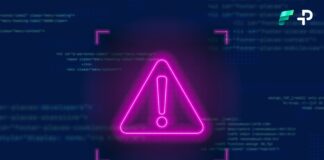What is a crisis? A crisis happens when a major glitch or malfunction crops up within a system. In this respect, the glitch brought on by the Covid-19 virus was a massive crisis. We are not looking at a partial breakdown of the system but a crash of the whole system. Unprecedented in nature and magnitude, this crisis was triggered and may have been accentuated by our modern day lifestyles with two accelerating factors largely contributing to the spread of the virus. These two factors are our megacities, on the one hand, and the 200 000 flights per day we have tracked to date on the other…The sanitary crisis clearly and quickly impacted our economy and society as a whole, bringing to the surface the incredible frailties and flaws of the way we were organized as a world economy.
And so, just like a giant crash test, the crisis serves as a litmus test and magnifying glass, proving a drastic impetus for change. Having uprooted our mental barriers, the crisis has pushed us to question our certainties and routines. It shows us that nothing is stable or permanent. By shedding light on these many flaws, the pandemic compels us to rethink the future in a different and more efficient way, i.e. innovating and constantly exploring new frontiers. Hence, it is a very powerful catalyst for change and an innovation accelerator. It is undoubtedly its only virtue nevertheless, it is fundamental.
With its magnifying glass effect revealing all, this ordeal has also brought to the fore the shortcomings of our governments. When relocating critical manufacturing industries they demonstrated that they had failed to anticipate such worst-case scenarios. Furthermore, the lack of transparency, the health agencies caught off-guard or the total communication chaos left people at a loss when trying to understand or make sense of the situation.
The Covid-19 crisis has reminded us of our helplessness in dealing with major disruptive situations in a level-headed way. It has cast doubt on our governments’ resourcefulness in the face of potential future geopolitical crises or other natural disasters. One can only hope then that the authorities will have actually reflected on the situation to reinvent themselves when serving the public interest while discarding any other political or personal motives. However, it is very likely that in the years to come, the sanitary crisis be used as an excuse by our leaders, unfortunately, to justify society’s woes.
Also, the Covid-19 crisis made us realize that the simple everyday gestures we take for granted are extremely precious. Who could have thought that sharing a meal with someone, visiting relatives or grandparents or simply giving somebody a kiss would turn out to be scenarios of the past?
It is likely that once the crisis is over, we will probably try to forget the trying moments and focus on the next steps moving forward. This is better known as selective memory. This form of intrinsic-genetic resilience is precisely what has enabled us to overcome hardships and forge ahead through time.
The pandemic is a harrowing and brutal situation. The economy has been hit hard and the colossal and necessary debt incurred to absorb the shock keeps growing. But, like in all crises, there is an upside to this crisis, that of fostering potential and positive structural modifications.
We have seen for instance the emergence of new players that have developed specific market characteristics to cater to the major shifts and changes brought on by the crisis. But what remains to be seen is to what extent these players can actually help society adapt and recover much stronger moving forward.
A Generation of Entrepreneurs
The Covid-19 crisis has led to restrictions on individual freedoms. The abrupt interruption caused by the spread of the virus has urged many to reconsider their priorities. With all that precious time on their hands resulting from the lockdowns and the partial unemployment scheme in France, they took the time to assess and rethink their career paths…
And so, those whose entrepreneurial streak was stifled by their daily routines suddenly got their big break. They could now start their business. The crisis for these “silent happy few” was a real booster for them that opened up a unique opportunity to take the plunge.
Those however who took the plunge before the crisis had to deal with so much more to stay in the game and work their way around the many obstacles caused by the crisis. Hence, those who have demonstrated great resilience, both in terms of inventive thinking and adaptability, could be qualified as “killer entrepreneurs.”
This new, stronger, more agile and adaptable generation of market players has, at the end of the day, simply leveraged their survival instinct in a time of crisis! Thanks to these new-found acquired skills, this new generation will probably have caught up on all or part of the accumulated backlog of our economy and, why not, even be at the helm of new kinds of wealth creation.
A Generation of Self Learners
By the same token, this crisis will have elicited change in career paths and vocations for millions of people with access to myriad remote or distance learning options. Online training programs now available to all are incredible learning tools that offer real opportunities to acquire and hone all kinds of skills even the most technical and advanced expertise. The Human Resource Departments and Managers, at least for those in tune with this new reality, will most likely factor in these new alternatives in their hiring processes, which are expected to accelerate, while completely disrupting the “traditional” training approach. A potential candidate displaying tenacity and adaptability when it comes to embracing self-learning as a new mode for skill building may garner more recognition over another candidate following the more conventional training scenarios.
The crisis was a catalyst for change paving the way for a wide range of possibilities including new career orientations. And in this respect it is now very common for people to switch careers and choose to do something radically different. As an example, next-generation developers, digital experts, Web designers are now joining freelance service platforms.
Free online resources and other distance training courses will have probably contributed to the development of professional reorientation, already being explored by millions of people around the world. In addition to the professional reorientation trend, these available resources also allow people to develop and improve their skills…Universities, renowned Business schools and institutes of Continuing Education should incorporate this new operational paradigm if they want to preserve their notoriety and ranking!
A New Generation of Leaders
Leaders emerge unarguably as a result of a given circumstance that underscores some form of injustice. The context of the pandemic will have undoubtedly deepened injustices widening the gap of social inequality and reshuffling the cards in favor of the rich and powerful. Thus, in the coming months, we will certainly be witness to mergers and acquisitions followed by many major corporate restructurings further down the road.
This “mechanical” or systemic transformation process should engender many changes. We should expect to see massive social movements come together to pressure governments into rethinking and reinventing social and economic governance. Moreover, new models or schools of thought led by new leaders should also see the light of day.
A Generation of “Digital Companies”
Who could have ever imagined to what extent our traditional work model, as we have always known it, could be shaken up? Video conferencing has already been around for awhile in certain companies but the crisis has definitely amplified the adoption of remote work to the extreme. And so now that we have systems that allow for online conferencing and meetings with multiple participants, the psychological barriers that held back managers, thinking that it was inconceivable to manage their respective teams remotely, simply dwindled away.
It will have only taken some configuration and adjustments here and there to move to the Cloud and be witness to office spaces cropping up everywhere. Countless meeting rooms, living rooms, kitchens or bedrooms have become the new offices where people gear up for their day at work. The adoption of these technologies is so widespread that we can actually entertain the idea of a surge in digital companies, companies that have no offices and with employees or freelance staff all over the world working from home. The ultimate “Digital Company” will be an organization strictly based on talent and oblivious to any geographical considerations. It is human centricity back in the spotlight paving the way for new and more efficient forms of social interactions.
This phenomenon offers great micro and macro economic perspectives:
- Gone are the days of horrendous rents, commercial lease and other types of real estate lease disputes…;
- Access to an incredible network of talents anywhere in the world;
- Salaries commensurate with experience and skill sets and not based on geographical criteria…
Between a company’s potential risk of being uberized and an opportunity to develop more agile and productive processes, technologies will also soon be providing AR-enabled (Augmented Reality) backgrounds. These next generation virtual backgrounds will offer an immersive workspace experience right from one’s living room or kitchen. It is not far-fetched at all to imagine an LED wall displaying a room in full view in front of you, bringing together the fully configurable living rooms of many employees. The employees connected will access dynamic dashboards with charts, texts and messages that their colleagues are actually working on in real time. Is the traditional business model facing extinction…?
“Truth is stranger than fiction,” as the saying goes. In any event, very many barriers and limits are being pushed back, blown to pieces or replaced by new ones. Innovation plays a prominent role in the reshaping demanded by what the pandemic has brought to light. When we overcome adversity we come out stronger. Without a doubt, a lot of things positive have already come out of this giant crash test. We will assuredly emerge from this crisis stronger and more efficient.



